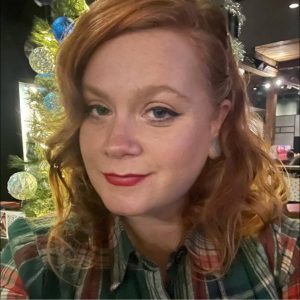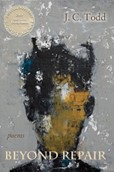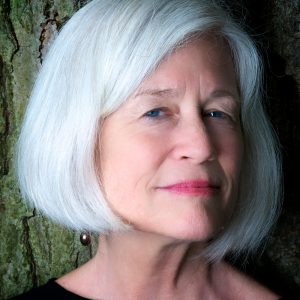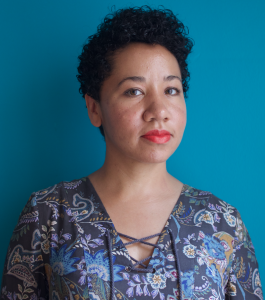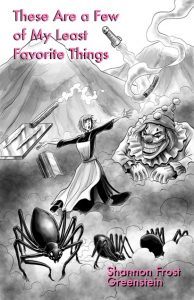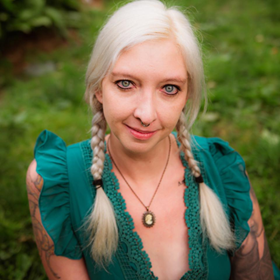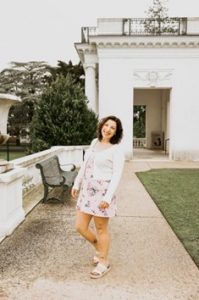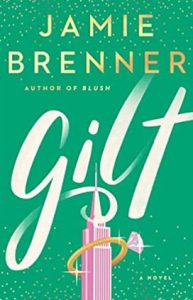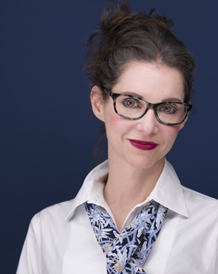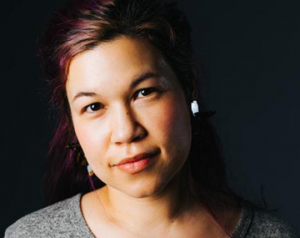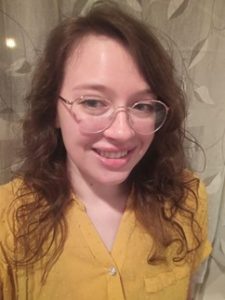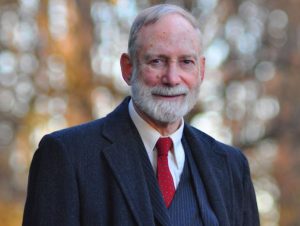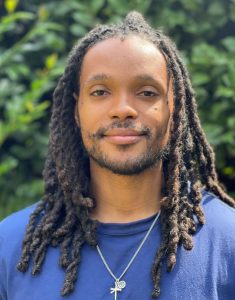
It’s not so much that it’s easy to tell the truth to each other. It’s more that we can’t lie to each other. When Connor called this morning and told me she was running late, I knew my sister meant we actually might not make our appointment. Usually if she’s late she says, “On my way,” which we both know means that I have time to get up, shower, brush my hair, apply a layer of cocoa butter to my brown skin, and cook my second favorite breakfast: toast, two poached eggs with no salt or pepper, and buttermilk pancakes with Aunt Jemima’s syrup. It’s the same as my favorite breakfast, but Pea, who died six months ago, made that one. She was diabetic and had hypertension, and so she never added salt to her eggs; nevertheless, she made a sweet exception for the Aunt Jemima’s—her favorite syrup and the only kind she’d buy. With her passing, so too went my favorite breakfast.
Because we can’t lie to each other, today, when Connor said, “Hey I’m late,” we both knew it meant later than “on my way” late. We both knew it also meant that we might miss this tattoo appointment she had set up three months ago. We both knew that I could take my time poaching these eggs, heating this syrup, and whipping up these buttery pancakes.
Pea had taught me how to make poached eggs. She said it was a simple way to impress guests. She didn’t know that my apartment was too small to have guests. It wasn’t bad, given that it was Santa Barbara. But after four years of Pomona roommates, some messy and others just disgusting; and after three years living in Venezuela with six different roommates, some messy and others just disgusting, I needed my own space when I moved here to start my Sociology PhD at UC Santa Barbara. Unfortunately, “own space” in Santa Barbara meant three hundred square feet for $1,800 a month in the Isla Vista apartment complex. “Own space” meant enough room for a twin bed, a standing shower, and a cocktail table that doubled as a shelf for my books. It meant a kitchen with granite countertops and just enough elbow room so that I could spin the boiling water and vinegar mixture with one hand and drop the egg into the pot with the other. Even wall space was limited—I barely had enough room to hang a portrait of Pea over the cocktail table. My apartment resembled a hallway with awkward, stubby offshoots. Not much room for guests. Which I actually found pleasant.
I think about making an extra egg for Connor but decide against it. Connor hated Pea’s “nasty ass eggs,” so she’d likely have a similar distaste for mine. I take a saucepan out and put the syrup on low heat, so it won’t scorch. I place a piece of rye toast in the toaster.
After our parents died four years ago, Pea was all we had left, so her death left Connor and I lost, but together. On the way home from Pea’s funeral in our hometown, Camarillo—which was the last time Connor and I were together before I left for Santa Barbara, and she moved to Denver—I asked Connor how she was feeling. Connor, who from learning homophones in the first grade had started addressing our grandma as “Pee” in her birthday and Mother’s Day cards, said, “It’s Pee. I feel fine.” We both knew that’s not what she meant. The same vigor with which she hated Pea’s “bland ass” cooking, she loved Pea’s support for her. For all her disdain for Pea’s straight-laced lifestyle, I think Connor secretly knew that, in part, she could only dye her hair blonde and wear crop tops above her belly button because of Pea. Pea had established herself in Camarillo as a successful entrepreneur in cosmetics; so by the time Connor came along with her too-tight skirts and her too-loose tongue, her teachers, camp counselors, and employers could just laugh it off. Of course, when she started her freshman year at Wellesley, her professors were less amused by her antics. Pea, a Wellesley grad herself, was overjoyed that Connor matriculated there, and said that the school would shape Connor into a strong and proper woman. Pea was less thrilled when Connor came back from her first year with a nipple ring that was “mad temporary” and a tattoo on her ribcage that was not.
I take a fork and test the egg white. It splits, and bleeds into the water. My phone lights up with a text from Connor that says, “I’m on my way.” I go over to the record player that Pea got me for my twentieth birthday and select Bach from my vinyl rack. I smile at Pea’s portrait hanging over my cocktail-table-bookshelf. Bach was her favorite. I gently place the record on top of the turntable and push the start button. The vinyl begins to spin. “Air From Suite No. 3 For Orchestra In D Major” echoes through my tiny apartment. I sway with the strings. The eggs, swirling in the pot, can boil a little longer.
Just as much as Wellesley shaped Pea into the woman she was to become, so too it shaped Connor. Both Pea and Connor graduated with a self-assured sense of who they were—Pea a crowd-pleasing host, who knew all two hundred people who sent her Christmas, Easter, and Juneteenth cards—and Connor, a twenty-two-year-old guest of honor, entertaining no one but herself and those she held dear, which included me.
I use my skimmer to take out the poached egg. The record player changes to “Brandenburg Concerto No. 3 In G Major.” The toaster dings with my rye toast. Connor texts me that she’s sorry—she’s not—and that she’s three minutes away—she’s twelve. I smile to myself, shaking my head, and gingerly lay the egg on top of the toast. Realizing I never mixed the pancake batter, which has to sit for fifteen minutes for the bubbles to settle, I turn off the syrup saucepan. Aunt Jemima will have to wait. I’ll make pancakes for Connor later—she loves sprinkling bananas and walnuts over them.
Connor insists she’s in no way like our grandmother, but we all know they’re similar. Our parents had always said that Pea and Connor are similar because they both so earnestly believe in their respective lifestyles and refuse to acknowledge the other’s. But that’s like saying they’re similar in that they’re so different. I’ve always thought that they have the same laugh. They both laugh like they’ve just heard the funniest joke of the evening at a dinner party. But while Connor always laughed at the joke, I think Pea laughed because that’s what people are supposed to do at dinner parties when funny jokes are told.
I finish my breakfast and check the time. We’re ten minutes late, and with early-morning Saturday traffic we’ll be—I sigh and remind myself that spending time with Connor is what matters most. Besides, we have a day planned that is immune to tardiness. Even if we miss this appointment, we are still going to my favorite food cart, El Pendejo, and picking up some arepas for a beach picnic. Fortunately, arepas rellenas and gentle ocean waves don’t have a time frame we have to fit into.
I hear her horn outside of my apartment, so I unplug Bach and throw the dishes in the sink on my way out.
“You’re late,” I say.
“Oooooh, I see they taught you how to read a clock on your first day of class in your lil program,” she says, waving me into her car. “Let’s go; you’re making me late,” she says.
I consider being mad at her for picking me up late, but then again, neither of us can really stay mad at each other for long. Instead I say, “I haven’t started class yet. Also—that’s all you can say after six months?”
“Um, let me think,” she says, allowing her pupils to roll upward to her eyelid, “Yeah, sorry, all I came up with.” I laugh. “Anyway, you ready for this tattoo?” she asks.
I try to still my breath. “Yes,” I say, which we both know isn’t true.
* * *
I turn the music down because the bass’s vibrations are hurting my neck. Connor had the 1997 Nissan outfitted with 700 watt subwoofers two summers ago to “make that shit go bang,” and right now, 50 Cent’s “Lollipop” was doing just that, rattling the floorboards and making the headrest “go bang” against the nape of my neck. I would move the headrest up, but it’s broken and jammed. I twist the music dial a little bit more to the left.
“Nigga.”
“Mhm?”
“Why you keep playin’ with my music? You ain’t no DJ.”
“It’s just a little bit loud,” I say, drawing out my “i”s so it sounds like the “ea” in pleading. She scoffs. It’s funny. I’m older, but I often forget it. In fact, a lot of people wouldn’t guess it. I think it’s because she just has an air of confidence that draws people to her. My first week of college, I took her to a Pomona dorm room party. I was a bit nervous about bringing a sixteen-year-old to a college function, but I promised Pea, my parents, and myself that I’d look out for her. When we arrived, the room smelled like cheap vodka, sweat, and a bunch of eighteen-year-olds trying too hard to be the person people would whisper about on Monday. I tapped her on the shoulder and reminded her to stick with me. The music was loud, and the walls were vibrating, but she opened her mouth in a laughing shape, so I can only assume that she was amused by my reminder. Sure enough, I turned to introduce her to my week-one best friend only to find she had already disappeared. She soon resurfaced, rum drink in hand, dancing in the crowd that was clapping to the tempo of her hips. My week-one best friend wacked my shoulder and asked if that was my older sister. “Younger,” I said. “She’s dope,” he said. “Yeah,” I said.
“Bro, how are we bout to get tattoos and not bang this shit?” she says as she rolls down the window. She turns the dial to the right. She throws a glance at me to once again remind me that I’m not a DJ. I wind down my window to prevent the throbbing noise that happens when you only have one window open in a Nissan driving twelve miles over the speed limit on the way to get your sister’s name tattooed on your left butt cheek.
“Hey,” she says, tone a bit graver.
“Yes,” I say.
“How have you been? Like with Pee and all?” She winds up her window and turns the dial all the way to the left.
“I’m alright.”
The wind throbs against my window.
“You don’t have to lie,” she says, and then adds, “dang, bro, wind up your window, I can’t hear shit.” The window squeaks as I wind it up. “Anyway, I know you sensitive, and you were close to her and shit.”
“Yeah,” I say, breathing a pause. “Anyway, what about you?”
“I’m aight. I miss her too, I mean you know me and her didn’t always see stuff the same way, but Pee, you know, that was my nigga.” I laugh. “Well,” she continues, “if you ever wanna talk about it…”
“Yeah, I know,” I say, cutting her off. “Hey,” I say, to which she nonchalantly grunts to let me know she’s listening. “It’s nice seeing you. Thanks for making the trip.”
“Bro,” she says as she twists the music dial to the right, “course I made the trip. You know I’ve been wanting us to get this tattoo for the longest minute. Besides, it’ll be a nice send off before you really start the whole school grind.”
The thought of school, and what it brings, rattles my nerves. I turn and look at Connor whose afro continues to bob to the beat. It’s great being with her again—before I enter the graduate student soirees, the cocktail parties, the colleagues’ open houses where I have to smile, wave, and mingle with professors who hope you will impress them. The floorboards vibrate with each beat of the subwoofer. The headrest might just come unjammed.
“Don’t this shit bang?” Connor shouts over “In Da Club” as we turn off the highway and onto the service road to the tattoo parlor. I laugh and rotate my head in sync with hers.
It does.
***
When we walk inside the parlor, I feel as if my skin shrinks. Connor had pushed me for about a year to get this tattoo. She wanted a way to commemorate our relationship. So last year I told her on her birthday that she could pick the spot as long as I could pick the design. I said that I’d get her name tattooed on me and she could get mine. I liked the idea of having her name tattooed because, well, it’s Connor. And she chose our butts, because, well, it’s Connor. I was saving for graduate school so I thought the promise would be an easy and cheap present—which, at the time, held true. Now, as I enter the parlor, greeted by a jeering chorus of needles, I realize that it was going to cost me approximately two hundred dollars, some suppressed tears, and some pain in my left butt cheek.
“Hey,” I say, cautious not to seem cautious.
“What?” Connor says, eyes stretching to let me know that she sees me, cautious.
“I’m going to use the restroom.” I turn so that I can just miss Connor’s smirk. When I enter the empty bathroom, I watch myself in the mirror as I approach the sink. I try and steady myself—but I feel like the walls of the bathroom are compressing with each step I take. When I get to the sink it has a crack at the base of the faucet so when I turn on the water it leaks onto the floor. Connor sure knew which establishment to pick.
***
My alone time is short lived. When the door swings open behind me, a whirring needle beckons my name. I let the lukewarm water run over my shivering fingers and resist the urge to see who walked in through the door. Made of dented tin, when the door shuts, it shakes. Sandals click against the heels of my bathroom friend as he makes his way to the urinal. Gradually, the clicking stops. A steady stream, simple, but rushed, replaces the periodic sandal clicks. Between the rattling tin, and my companion’s pee, I can’t hear the needle calling me back into the parlor. I turn up the water temperature and pressure. Feeling the warm water race the blood in my veins from my wrist to my fingertips, I stretch my fingers outward, pushing the center of my palm toward the drain, admiring my black skin. Peacefully, the hairs on the back of my hand lay down under the water’s flow. I envy them. I wonder if Connor knows I’m hiding right now. She probably does. She knows I’m anxious. I feel anxious not because I don’t want the tattoo; rather, I feel anxious because I do. A marker of Connor and her radiant confidence, forever inscribed on my skin sounds appealing—granted, I could’ve done without the butt placement, but nevertheless, I’m excited for the tattoo. I’m just anxious about the needle.
“You’re nervous, aren’t you?” my companion says to me, approaching the adjacent sink.
I smile politely neither confirming nor denying.
He gives me a pat on the back that hits a little too hard and I stumble forward. He grabs the bathroom door and yanks it open. I catch it with my foot and step into the dimly lit parlor, greeted by darkness and a chorus of needles that seem to never tire of singing their desire to set my skin ablaze. The parlor is set up with one walkway between the front desk, the exit, and the bathroom. Studio cubicles line each side of the hallway. Inside each cubicle is a cushioned chair, a hunched tattoo artist, and a client, ready for permanency. They’re packed today. I join Connor in the third cubicle on the left.
“Y’all related?” the artist asks as I walk in, his white hands twisting the contact screw on the coil machine. He’s a skinny guy.
“Yeah, she’s my sister,” I respond, nodding in her direction. My sister looks up from her phone. Noticing my return from my fifteen-minute bathroom regrouping session, she shakes her head and kisses her teeth.
The artist’s arms are a technicolored masterpiece of dragons, tigers, and Mandarin characters. I ask him what the characters mean. He says one means “love” and the other means “peace,” but he can’t remember which. His hair is blonde, but I can only tell so by his roots, otherwise each strand is as colorful as his arms and the ink sitting on his workman’s table. His blue eyes dart between Connor and me.
“Who’s older?” he asks.
“I am.” I say, accustomed to that question and the usual next response about how we look alike.
“Man, I tell you what. Y’all look like twins. You sure you older?” he asks. He clicks a tube of black ink into the machine’s clamp. His pupil lights up as he holds the needle’s tip to his eye, activating its whir. He smiles at his toy.
“Yeah,” I say.
The man, chuckling and spinning his needle, gestures at me, “So I guess you’re first then?” The needle is steady in his hand. “So,” he says, flicking his head at me, “you’re getting Connor, tattooed in…” he says, trailing off.
“Brush Script MT,” I say, helping him out, but also trying to look like the older sibling.
“Annd on your butt?”
“Right on dat ass,” my sister says, smirking.
He nods.
As I feign a confident step toward the cushioned bench and pull down my pants and lay down on my stomach, I tell myself that this is what I want—for Connor, and for me. I bury my face into the pillow at the head of the bench, and feel the needle, filled with a venomous black ink, begin singeing “Connor” into my left buttocks. Goosebumps race down my spine, leaving a painful chill in their wake. I gasp for air, but I can’t breathe out the pain, and so I wince as veins pulse through my neck. My skin cringes against the needle’s bite.
***
If my tattoo felt that it lasted longer than an opera, Connor’s lasts about half an intermission. Somehow though, it is long enough for our colorful artist to disgust her. When did she graduate Wellesley? He asks. Last year. Oh really, what has she been up to? She plans weddings and collects paintings. Where does she live? Denver. Is she married? No—Connor grunts at the artist, her voice muffled by the pillow. “Hey, I’m just asking,” he says, defensively holding up his right hand. How old is she? Twenty-four. He blows out his cheeks like a sigh of joy released when a full plate is put before him in a restaurant. He takes a bite. What’s a cute Black girl like her not doing married? Does she know that he loves Black women? She doesn’t know why she’s not married and doesn’t particularly care; she also doesn’t know that he loves Black women and doesn’t particularly care. He squints and smiles, running his tongue between his lips, tasting his imagination. Does she know she can call him anytime she wants?
“Shut the fuck up,” Connor says, turning her face away from the pillow to ensure that her words and their accompanying glare find their mark on the tattoo artist. The artist, shocked by both her words and her movements, pulls his needle into the air—a safe distance from her butt.
“Woah missy, sit still.” He nods in my direction, begging me to admonish her as well. He wipes wisps of colorful hair from his eyes. He clears his throat, gathering himself. The needle shakes in his hand.
“Please,” I say quietly, feeling guilty as I oblige him, “sit still, Connor.” I let the “r” trail off into my shame. I blink. I wait for a response.
Connor doesn’t reply—which hurts more than if she had told me to stop being a pushover like I always am, to stop giving into white people like I always do, or to stop acting like this artist with “love” written on his arms in a language he didn’t speak wasn’t a brute. Her silence stings more than the needle. Eyes darting between me and Connor, the tattoo artist leans forward to resume his work. He clears his throat as if to say something, but falters. The coil machine buzzes against the silence of the room.
“You can get up now,” he says, leaning back in his chair as the needle’s whir slows. He breathes a sigh of relief. He asks if either of us would like a mirror to see if we liked the tattoo. Connor says no. He tells us to treat the tattoo with Bacitracin three times a day for five days, and moisturize for two months. I say okay. I ask him if we pay him directly or if we pay at the front desk. He tells us to pay up front. Connor stands up, zips up her pants, and leaves.
***
We pick up some arepas from El Pendejo and drive over to Goleta Beach for a picnic. The entire ride to the beach, Connor refuses to speak to me. Even when I turn the radio dial all the way to the left, she doesn’t say anything. I decide that she will probably talk when we arrive at the beach—we usually can’t stay mad at each other for long. But when we get to the beach, Connor remains silent. The seagulls are crying against the scorching sun bearing on their backs. I suggest to Connor that we should probably sit on the wet sand because the dry sand looks hot, and my butt still stings from the tattoo. I take her silence as agreement. Before sitting down, we walk across the street to the local convenience store. We pick up some ice, some ginger beer, some sweet plantain chips, and some SPF 100 sunblock and head to where the wet sand is still a dark brown hue.
***
Connor is still quiet, and so I entertain myself with the wet sand. It keeps escaping my palm. It’s particularly frustrating because it’s not like dry sand, which you pick up and watch leave, never expecting it to stay. That feels like a massage. This is frustrating because the clumps of seashells and dark brown sand grains are supposed to stick together in my palm. But they won’t. And picking up more clumps doesn’t make them stick any better. They keep slipping.
“Hey,” I say, not expecting a response, but hoping at least to catch Connor’s eye.
“What,” Connor says, her voice flat and barely audible over the smooth waves crashing against the shore.
“I’m—” I begin, looking down at the sand, “I’m sorry.”
Connor has her left hand submerged under the sand. The sand shifts around her wrist as she wiggles her fingers beneath the surface. With her right hand she raises her arepa to her mouth, biting pieces big enough to most certainly take some of its paper wrapping with each chomp. She chews slowly, searching my pupils for sincerity.
“I shouldn’t have said what I said,” I continue, “I just got nervous because he had the needle, and I didn’t want him to mess up or intentionally—”
“Someone’s always going to have a needle,” she says, taking a break from her lunch.
“Huh?”
“Nigga, someone will always have something over you. There’s always going to be a reason to, what was it you said?” Connor asks, or rather demands, given that we both know the answer.
“Sit still,” I murmur. Connor and I don’t lock eyes but instead watch the water in front of us inch closer. “I’m sorry,” I cast out in front of us into the tide. The frothy water pulls back, and then gently pushes toward us, touching our toes. Gulls and minutes fly over us. After the sixth gull, I feel Connor’s body release next to mine. I feel her nod in acceptance. Connor resumes taking eager bites of her arepa. I resume playing in the sand.
I know Connor is right, but it’s difficult to break the habit—especially because the habit has carried me to where I am today. When my parents passed, Pea was my sole source of guidance. She taught me it was, “Yes, ma’am,” not “yeah.” She taught me that my handshake would tell its recipient everything they’d need to know about my upbringing. She taught me how to smile and laugh politely. She taught me to keep my hair short. She taught me, most of all, that I could not act the same way in every place. I learned this first as a child, at weekly bingo with her coworkers, when I laughed a little too loud and earned a bop on the lips. I learned it again as a teenager, at her monthly tea party with the church ladies, when she pinched me for not smiling and nodding enough at the women’s remarks about my cleanliness. Pea never had to explicitly say it was because the church ladies and her coworkers were white—I knew. While I was grateful for this lesson—in fact, it was likely the only way I could navigate my way through Pomona and into Santa Barbara’s PhD program—I couldn’t help but feel like a piece of me was slipping away in the process.
“You need to quit playin’ in the sand buildin castles and shih like a lil boy and eat yo lunch before the water takes it.” Connor drops more endings and consonants than usual with her mouth full of arepa, pollo asado, and guacamole. I smile. She has a point though. The tide was edging up closer to our evening picnic and threatening to take my arepa rellena, which so far was just missing one small bite. Connor grunts, snorts, takes another bite—dangerously close to the paper—and swallows.
“You know you really shouldn’t eat…” I begin.
“Bro, I’m grown, you really gon tell me how to eat?” she retorts. I shake my head, laughing to myself.
Throwing a piece of her arepa into the water for the gulls, she asks, “When do you start again?” I tell her at the end of summer. “You hype?” I tell her I’m nervous and just kind of waiting on classes to start. The tide comes up closer now such that I have to hold my arepa in my hand so that the ocean doesn’t whisk it away. The cool saltwater feels soothing on my butt that still burns from the tattoo needle.
“Yeah,” I say, allowing my voice to trail, “I’m just worried that this is it.” Connor’s ferocious chewing slows. “What you mean?” she asks.
I tell her that I’ll be twenty-six on my first day at UC Santa Barbara, and I’d be thirty-three on my last day. I tell her that I’m trying to be married by thirty-two and want kids by thirty-four and that I want to be fully dedicated to the three of them and I’ll be sixty-five before the last one leaves the house, and then I’ll look up and think—I didn’t finish this thought but let my mind ebb and flow with the Pacific. I throw a piece of arepa at the gulls. I watch them flock, chasing the crumb against the tide. I smile but my eyes are heavy, trapped in the years to come. “I feel like I’m on this path I’ve set before me, but somehow I’m not in control.”
“Shit, nigga!”
“What?”
Connor yanks her left hand out the sand and pulls out a piece of paper from her mouth.
“Damn near swallowed this paper,” she says, throwing the paper into the water. She glares at the paper as the tide takes it away. I chuckle. “Anyway,” she continues, “you need to relax. You’re just now starting school. Everything will be fine.”
I grab another handful of sand. I spread my fingers so that clumps fall between the cracks until all that remains is the muddied sand sitting on my fingers. Then this leaves too.
“You know how, how Pea taught us to act carefully around—”
“White people.” Connor says, not guessing the end of my sentence as much as stating a fact.
“Yeah. I know it’s in part why I am where I am today, but I’m worried that I’m only good at acting.”
“Like that shit you pulled in the tattoo parlor?”
“Yeah. And in class when I’m afraid to challenge certain, you know, classic authors. Or, in casual conversations when I’m afraid to call something racist. Or at—”
“Look,” Connor says, swallowing her last bite of arepa, balling up its wrapping and tossing it in the El Pendejo sack that doubled as a trash bag. “You acting all fatalistic and shit—you are twenty-five. You need to relax.”
“It’s more than that,” I say, unsure of what “more” actually looks like. “It’s just so easy for you. You step into the room. You captivate everyone. You say what you want. I just—I just,” I stammer, grappling with expressing my desires for a wholeness that I cannot even imagine, “I just wish I could do that. Like you.” I guess that’s what more is.
“Fine. Then change,” she says firmly. “You’re about to enter a new chapter of your life in grad school. Look, I know you love Pee. I love Pee, too. But she wasn’t right about everything.”
I nod, reflecting on her words. The sun’s setting rays bounce off the ocean, glistening in my eyes. I shove my hands into the sand. Connor stares at me intensely, blinks, and then shakes her head like a babysitter who’s tired of the baby spilling applesauce on his lap. She smiles. I try and hide it, but it’s Connor, so I smile. I lift my hands out of the sand and watch the elusive clumps slip between my fingers, slide off my fingertips, and plop off my palm into the tide.
***
That summer went by slowly. I would like to say it was because I was eager for grad school—this new chapter. Or because I turned twenty-six. Or because I started seeing this woman with beach blonde hair whose mediocre jokes made me laugh politely. Or because I stopped seeing this woman with beach blonde hair whose mediocre jokes didn’t warrant my polite laughter. Or because I made poached eggs and buttermilk pancakes with Aunt Jemima’s syrup for breakfast every morning and tired of the repetition. Or because I spent countless days sitting on the beach, spreading SPF 100 sunscreen over my body, mindlessly playing in the sand. But in truth, it was just because the days were long, and the nights were short, so I didn’t sleep much.
After school starts in August, Connor calls me to tell me she is visiting in November.
“How’s school?” she asks.
“It’s fun,” I say, which we both laugh at because we know that’s not the truth. “It’s alright,” I say, which is more accurate.
“What’s your cohort like?”
“They’re cool, there are like fifteen or sixteen kids.”
“Any Black?”
“I’m the only one, but there’s this Korean-American student and this student from Venezuela.”
“You made any friends?” Connor asks. I know what she means—she means actual friends, not friends I placate with my laughter, handshakes, and polite smiles.
“Yeah,” I say, surprised at my voice. It sounds confident, but not in a way that’s forced or performed; it sounded, actually, confident. “I have. Like you said, it’s a new chapter.” It’s true. In late August, I arrived on campus with her cursive name written into my skin, and her firm words written into my mind. I skipped a few haircuts to let my hair grow. I stopped obsessively shaking hands with people. I ensured that there was no limit to my laughter’s decibel or my smile’s width.
“Cool. I’m happy for you,” she says, in a plain voice—though I imagine she smiles on the end of the telephone line. “Anyway, I’m coming in a couple months to visit yo ass,” Connor says, which we know is a lie.
“Why’re you actually coming?” I ask.
“Work trip. The eighteenth. I think it’s a Thursday.”
“Oh, well if you have a moment, that Friday you can come to a little housewarming party I’m having.”
“Nigga, you hate guests,” Connor scoffs. “Besides, you ain’t got a house to warm. You got a hallway. No, you got a closet. No, you got a cabinet. Actually wait, you got a—”
“Connor, I get it. Yeah, my house—”
“Apartment.”
“My apartment,” I continue, my voice feigning irritation, “isn’t big. And of course, I know I hate guests—you don’t have to remind me what I like. It’s just some professors and some of my cohort who I want to get to know better. And maybe you. It’s not a big party or anything.”
Connor grunts to convey her suspicion. She sighs. “Yeah, I’ll be there. What’s the attire?” I tell her everyone will be in casual—jeans and a nice shirt at most. We chat a bit more about her work, my school, and California. I ask her how her tattoo is. She asks me about mine. Neither of us kept up with our Bacitracin treatment. Mine’s the only one that scabbed, though, so she’s the lucky one.
***
It’s windy outside of my party. I’m thinking a lot to myself. People are happy. Bach’s playing. I’m serving coconut-almond cake and white wine. But I’m not thinking about the people here. Or what they’re drinking. Or the wind. I’m mostly thinking about where Connor is. She stayed in her hotel last night and said that she’d come by today around 7:00 pm to meet my classmates. She said she couldn’t stay long because one of her Wellesley classmates was having an event over at Wildcats on Ortega. But it was 7:30 and she was late, again.
“I love this music selection you’ve put together!”
It’s Jack. He graduated from Williams last year, and today, is one of the first days I’m seeing him without his usual attire—creased khakis, a blue blazer, and a knit skinny tie. A great-grandchild of German immigrants, he had confessed his love of Bach to me on the third day of class.
“Thanks, it was my grandmother’s favorite.”
He tips his wine glass toward me in her memory. “Well, she had good taste,” he says. I know Pea would’ve smiled at his compliment.
“Good turnout, by the way!” Jack says. More had shown up than I anticipated. Around six of my colleagues and three of my professors mill around my cocktail table and sit in my bedroom. I normally wouldn’t open up my personal bedroom space, but after the eighth person came, I figured I’d have to make everyone comfortable.
“Thanks, Jack,” I say. I smile. “Komm Du Susse Todesstunde” begins playing. I hear an aggressive banging on the door.
“Who’s that?” Jack asks, shriveling his nose at the new guest’s brazen greeting, “They didn’t ring the doorbell or anything.”
I excitedly excuse myself to go and let Connor in.
Connor walks in bringing a gust of cold air with her. The breeze bounces off Connor’s red cocktail dress, and shoots straight through my hallway of an apartment, chilling the room. My professors and colleagues turn their head to see where the breeze came from.
“Aye, what’s up,” Connor says. A neck sticks out to see who it is. Rolling my eyes in playful irritation, I reach for her bag, which she jerks back from me. I flick my head, motioning Connor to follow me to the kitchen.
“Why are you so late?” I ask when we step away from the crowd. “And what’s with the red dress?”
“Okay one, this dress is sexy. Two, you gonna get in your feelings or be grateful I showed up at your wack ass party when I have to be at Wildcats in an hour?” Using her shoulder and some momentum she heaves her bag onto the kitchen counter. It clinks when it lands on top of the granite. Before I can raise my eyebrows, she pulls out a handle of rum. “Also,” she says, reaching into my cabinet and grabbing one of my wine glasses, “there was traffic.” She pours the brown liquor about halfway to the brim. She takes a sip, closes her eyes in faux bliss, and purses her lips.
I laugh at her absurdity. “You’re drinking it like it’s juice, Connor,” I say pulling the handle away from her.
“Nigga, relax. I’m sippin on it. Besides,” she says swooping her right hand around the kitchen gesturing toward the white people crowded in my apartment eating coconut-almond cake and sipping wine, “it’s a bit stuffy in here, isn’t it?” I smile. “Also, bro, what’s going on with your hair?” She winces as she swallows the rum.
“New chapter. Remember?” I say, running my left hand through my mini-fro and grabbing a tumbler with my right. I pour a splash of rum. I clink my glass with hers.
“Hello!” a voice calls from the threshold of the door. “So, who is this new guest?” The end of her sentence hits a crescendo. I curve my neck around Connor and see Janice, or rather, Professor Christianson, as she insisted we call her, walking from the doorway into the kitchen. She wears a purple bowtie around her neck that contrasts her pale skin. Her brown hair curls around her narrow shoulders. She still has on her cropped slate blazer. She enters with her palms open, eyes beaming. I down my dreg of rum quickly, embarrassed. Jack and three of our classmates walk in behind her.
“Hello, Professor Christianson, this is my little sister, Connor.”
She raises her eyebrows. “Younger?” she asks, surprised.
“Younger,” I say, unsurprised at her surprise.
“Pleasure to meet you,” she says.
Mid-sip, Connor tips her tumbler in Professor Christianson’s direction to greet her.
“And Connor, these are some of my colleagues,” I say, gesturing behind Professor Christianson.
“Nice to meet you all,” Connor says, swallowing and grimacing as the rum rolls down her throat.
My professor, captivated by Connor, asks her about her work, how she likes Denver, and how her trip to Santa Barbara has been thus far. Jack, less interested in Connor, chats with me about my studies and how I’m liking our course together, Social Policy and Culture, which we have with Professor Christianson. I tell him I’m enjoying it, but I feel like some narratives are missing. He says, “Like what?” Connor catches Jack’s question and my eye.
“I just, you know, feel like we focus a lot on Marx, without really analyzing how his work can overlook race.”
I feel Connor’s smile.
“What was that?” Professor Christianson interjects, catching the last of bit of my critique.
“Oh, we were just talking about your course Professor,” I say innocently.
“What about it?” Professor Christianson murmurs into the brim of her white wine glass as she lifts it to her lips.
I hesitate for a second. It’s short. But it’s long enough for my doubts to creep in. It’s long enough for my fear of what I’m actually thinking to creep in. It’s long enough to for Jack to say, “We were just talking about—”
“What we have learned so far,” I say, finishing Jack’s sentence. Connor avoids my eye contact.
Our professor smiles clearly pleased that her classroom discourse has made it into the cramped spaces of the Isla Vista apartment complex. “Yes,” she says, taking a long drag of white wine. “Next week we’ll be focused on the intersection of capitalism and political propaganda, ranging from Pear’s Soap to Pop Chips, to Aunt Jemima’s Pancake Syrup, which, I might add, is the only modern-day representation of the docile Black mammy-slave caricature.” She smiles with her eyes to congratulate herself.
“We’re looking forward to it,” chimes the chorus of students standing behind her. I nod.
Professor Christianson chuckles. “I actually hate to admit it, but I was raised on that syrup when I was little. It’s hard for me to let it go. I still douse my buttermilk pancakes in it!” The students chuckle. I hear myself join in their laughter.
“My grandmother, Pea, she loved that syrup too,” I offer, shivering at my guilt.
“Now!” my professor exclaims, “Is that whose picture is over your cocktail table?”
“Yes, Professor, it is.”
“I’ll tell you what, when I first set my cake down on that table, I saw that picture and I was like, ‘Man she looks just like my favorite syrup!’” The chorus of students chuckle behind her.
My skin cringes against the bite of my professor’s words. I feel Connor wince. I cannot exhale. Pea, our grandmother, compared to a helpless mammy. I want to speak up. I want to say that she looks nothing like Jemima, and that even when she would serve the syrup to us, she always warned us about both its sugar and image content. I want to stop handshaking, nodding, “yes ma’aming,” and acting—but Pea’s bop, her pinch, and her scorn echo in my head like Bach. I cannot escape them, even when it’s Pea’s own memory at stake.
I feel my lips curl upwards into a smile. I hear a chuckle escape them. It escapes because that’s what chuckles do at house parties when a funny joke is told, even if the joke isn’t funny.
Connor throws her glass in the sink, chipping its brim. Leaving her bag, she pushes past my colleagues at the kitchen door, and storms outside. She moved so quickly that her absence is only felt when the breeze creeps in after her departure. I politely excuse myself and follow her outside.
“Connor!” I yell against the wind.
“What!” she snaps, “How are you different? First me with the artist, and now Pee with your,” she pauses and mimics the tightening of a bowtie before spitting, “Professor. She called Pee a mammy. A fuckin mammy.”
“I’m, I’m sorry,” I stammer back. “I’ve been doing this my whole life. As much as I try, as much as I want to, I can’t just break…” The wind carries away my voice.
“Let me tell you something,” Connor says, stepping closer to beat the wind and ensure her words hit their mark. “It has nothing to do with how long your hair is. Or how many philosophers you can bring up in class. Or whether you can stomach a tattoo. It has nothing to do with your ability to smile at your colleagues when they say some racist shit or laugh when they tell a wack joke.”
She pauses. I wait while the wind howls.
She continues, “It has to do with how much you care about the needle over you. And let me tell you, someone, someone will always have a needle.”
“Connor!” I say, shouting in protest against her and the wind’s threat to drown out my words. “You don’t know what’s at stake! That’s my professor…” My voice fades into the prospective horror.
Connor, squinting against the wind, stares into my eyes.
“No,” she says, pointing her words, almost spitting them, “You don’t know what’s at stake. But you’ll see. You’ll see when you’re sixty-five-years-old, travelling on a path you set, walking with feet you can’t control.”
I open my mouth. I find out I have nothing to say. I close my mouth and drop my head.
“I’m late for Wildcats,” Connor says, not bothering to look at any time piece.
“There’s still a half hour left of the party. Can’t you stay?” I find some words to cling to.
“There’s traffic. And I have to call a cab.”
I open my mouth, but she cuts me off, “No. I don’t want to wait inside.”
I nod, hoping that she won’t stay mad for long, but knowing that this time she will.
Her red dress turns and walks away. As her afro, unfazed by the wind, descends the stairs, goosebumps race down my spine.
***
The rest of the party lasts for about thirty uneasy minutes and forty-six seconds. When I come back inside, Jack and Professor Christianson ask me why Connor left so abruptly. I tell them she had a friend’s party to get to. They raise their eyebrows. I’m aware that this explanation is inadequate for them. But I’m too tired to offer another one. I’m tired because for the remaining thirty minutes, I’m thinking to myself. I’m thinking about whether Connor is right. I’m thinking whether my efforts to be more like Connor are insufficient so long as I still care about what my professors and colleagues will think—so long as I still care about the needle hanging over my skin. When I offer Professor Christianson this inadequate response, she asks if Connor is okay. But I think she’s not asking about Connor’s wellbeing as much as telling me something is wrong with her.
“Yeah. She’s okay,” I say. I hope she is okay. I wish I could say I knew, but I don’t know. And I’ve always known how she felt. That’s what makes my skin shrink. It’s what makes me uneasy. It’s what makes me feel as if my hallway of an apartment somehow found room to split down the middle and I’m doing my very best not to slip into the divide.
“Well thank you so much for, you know, opening your house and welcoming us all,” Professor Christianson says, changing the subject. “You’ve been just so, accommodating.”
Connor would balk at this compliment. But I’m not Connor, so I say thank you and smile. Part of me smiles to cover up the fact that goosebumps still line my spine although the wind no longer wails around me. Part of me smiles because I think that Professor Christianson likes me, which will help me in the program. Part of me smiles because I think Connor is wrong.
“I’m looking forward to seeing you in class on Monday,” she says, shaking my hand. I tell her that I, too, am looking forward to it.
After these thirty minutes and forty-six seconds shrink out, my guests too, make their way to the door. On their way out, they shake my hand and tell me how great of a time they had at my party. I thank them for coming and wish them a safe trip home. When the guests are gone, and my house is empty and pleasant, and the wind has rested for the evening, I sit at my cocktail table. Right under Pea’s portrait. I wonder if Connor is having a good time at Wildcats. I hope she is. I pour myself some of the rum Connor left in the kitchen into a wine glass. I sip it slowly and silently as the four voices of Bach’s “Little Fugue in G Minor” echo through my apartment. I wince as the record needle scratches behind me.
Lincoln Mitchell moved to Philadelphia in 2019 to begin his career as an attorney at the Public Defender Association of Philadelphia. He originally is from Oklahoma and is the son of a Jamaican immigrant and a Black American. He has a younger sister/best friend, Logan, who recently gave birth to his cherished niece, Zaria. In 2021, he too became a parent to his adored toy poodle, Lacienega Poodlevardes, whom he fondly calls Lala or Miss Mommas. In his spare time he enjoys developing specialty lattes, exploring cultures through their cuisines, and going to the gym to listen to UK rap while texting his homeboys. He strongly believes that prisons should be abolished, everyone deserves grace and forgiveness, and that proof of God’s presence on earth is in mangoes and a bent-over laughing fit.

